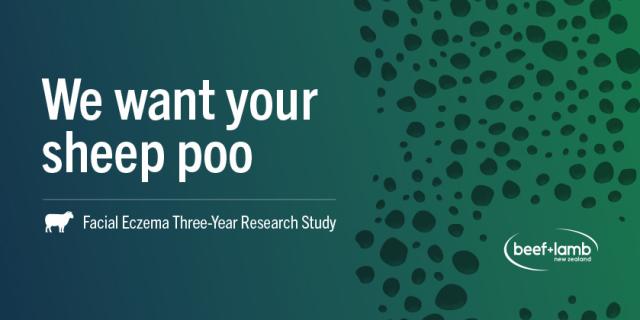
This study will assess the prevalence and contributing factors of facial eczema (FE) across New Zealand over three seasons (2023–2026). Up to 350 farms will participate annually to help tackle this disease together and help improve management strategies.
Background
This study aims to assess the prevalence and factors contributing to Facial Eczema (FE) across New Zealand, addressing crucial gaps in our understanding of this costly livestock disease. Running over three FE seasons (2023–2026), the study targets 350 farms each year, with testing conducted from October to May. Farmers are encouraged to participate annually, helping to shape future strategies for managing FE.
FE is caused by a toxin-producing fungus found in pasture that affects grazing livestock in both the North and South Islands. The toxin damages the liver, leading to significant health issues such as reduced fertility, weight loss, decreased growth, lower milk production, photosensitivity, sunburn, and in severe cases, death. There is currently no cure for FE, which costs the New Zealand sheep, beef, dairy, and deer sectors an estimated $332 million annually, according to B+LNZ’s Economic Service.
Benefits to farmers
By participating in this study, farmers play a key role in shaping future tools and strategies for managing FE. The benefits include:
- Free testing and results: B+LNZ covers all testing costs, including sampling kits, prepaid return courier packaging, and testing through Gribbles Laboratory. Farmers will receive regular fungal spore count results, along with an anonymised nationwide map that tracks FE spore levels.
- Insight into FE risk factors: By providing data on farm conditions, livestock management, and current FE practices, participants contribute to identifying the key risk factors that influence FE prevalence.
- Contribute to a national solution: Farmers have the opportunity to share their insights into the broader social and economic impacts of FE, aiding in the development of more effective and sustainable management practices.
Your active involvement will help create a comprehensive understanding of FE and pave the way for better disease management solutions, protecting livestock health and improving farm productivity across New Zealand.
How to get involved
Participating in the study is simple and rewarding. Every two weeks from October to May, farmers will:
- Collect 10 individual samples from a designated mob of sheep.
- Submit samples using kits and prepaid courier packaging provided by Gribbles Laboratory.
- Receive spore count results and a nationwide spore map.
- Join the WhatsApp group and share photos and stories
- Provide information about their farm and sheep, as well as insights on FE’s management and broader impacts.
This initiative offers farmers an invaluable opportunity to contribute to a national effort to combat FE and ensure healthier, more resilient livestock for the future.
B+LNZ project lead
Cara Brosnahan, Principal Scientist – Animal Health Research.
Farmer involvement
Up to 350 farmers are providing samples.
Provider
B+LNZ, Awanui Veterinary and Ingenum.
Expected end date
End 2026.
Saying thank you
- Farmers who manage to send in all their samples by the end of the season will receive a Prezzy Card.
- Each year, 25 randomly chosen farms will undergo monthly FEC (Faecal Egg Count) and larval culture testing from October to May.
- Expressions of interest for the 2024–2025 FE season are now open!
King Country – one of our youngest sheep collectors. Photo credit: Cathryn Peacocke.
Sign up here and help make a difference!
More information about the study
- See B+LNZ’s Breakfeed podcast about the study.
- The Head Shepherd podcast, where B+LNZ’s Principal Advisor Animal Health Research, Cara Brosnahan, talks to Mark Ferguson.
- Watch B+LNZ Knowledge Hub video on sub-clinical FE.
Helpful videos about collecting sheep poo samples
- Collecting the sheep poo: how and how much do you need to collect for each sample.
- Measuring your pasture: how to use the sward stick that comes as part of your collection kit.
- Getting a GPS coordinate: how to use your smartphone to record the location your samples came from.
- Completing the submission form: what goes where before you send your samples in.
- Getting the pottles of sheep poo in a bag and into the box for couriering.
B+LNZ Lead and contact: Dr Cara Brosnahan, B+LNZ's Principal Advisor, Animal Health Research (cara.brosnahan@beeflambnz.com)